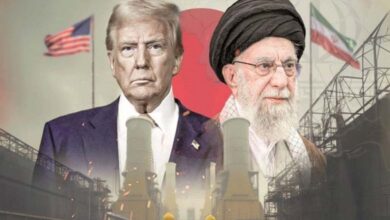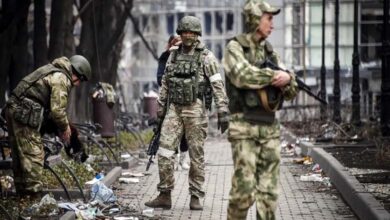Italy warns against Tunisia falling into the hands of Russia and China

Italy has warned against leaving Tunisia in the hands of Russia and China by preventing the West from providing it with financial and economic support. Meanwhile, Rome does not hide its fear of the consequences of any economic collapse in Tunisia on the stability of the Italian state, with the growing threat of irregular migration, which prompted its government to declare a state of emergency a few weeks ago.
Italian Foreign Minister Antonio Taiani called on the European Union to support the Tunisian state financially to overcome its crisis, with the Tunisian side failing to obtain a $1.9 billion loan from the International Monetary Fund.
According to Italian news agency Nova, the Italian minister spoke of the dangers of an increased Russian and Chinese presence in Tunisia, especially after political forces supporting the president and the July 25 camp expressed their intention to join the BRICS and rely on the Eastern Bloc which includes China and Russia.
Recently, Beijing and Moscow have sought to strengthen relations with the Tunisian side. Tunisian Foreign Minister Nabil Ben Ammar held phone talks with his Russian counterpart Sergey Lavrov to discuss strengthening bilateral relations.
China’s ambassador to Tunisia, Wan Li, has also frequently praised the development of Tunisian-Chinese relations, criticizing the pressures faced by the Tunisian state from Western powers.
In the face of mounting Chinese and Russian interest in Tunisia, the Italian Foreign Minister called on the West to act, saying: “Let’s not leave Tunisia in the hands of Russia and China.”
Russia’s war in Ukraine fueled tension between the East and West camps, conjuring up a Cold War scenario amid a highly polarized and feverish competition for influence in Africa and the Middle East.
The Italian minister also sought to convince the Europeans to grant the first installments of loans and follow up with Tunisia in carrying out the required reforms, saying, “There must be immediate disbursement of funds, monitoring the reforms that will be made, and the subsequent installments.”
Italy is one of the main European countries calling for economic support for Tunisia in the face of other countries which are demanding democracy support, especially Germany and Scandinavia.
Rome has pushed all its efforts to reach an agreement between the Tunisian government and the International Monetary Fund to break the deadlock in negotiations on a $1.9 billion financing loan.
“The Tunisian government, led by Najla Bouden, has pledged a package of reforms in its negotiations with the IMF, but the sticking point is whether to reduce or eliminate subsidies, which Tunisian President Kais Saied has flatly and categorically rejected due to fears of social unrest.”
Congress relieved the pressure on the Tunisian government by saying at Wednesday’s hearing that Tunisia should be given economic support to prevent its collapse, which would have major repercussions in the region, especially for Washington’s allies such as Italy.
Congress, while stressing the need to respect democracy in Tunisia, insisted on supporting the Tunisian army as a pillar in the fight against terrorism in the region.












